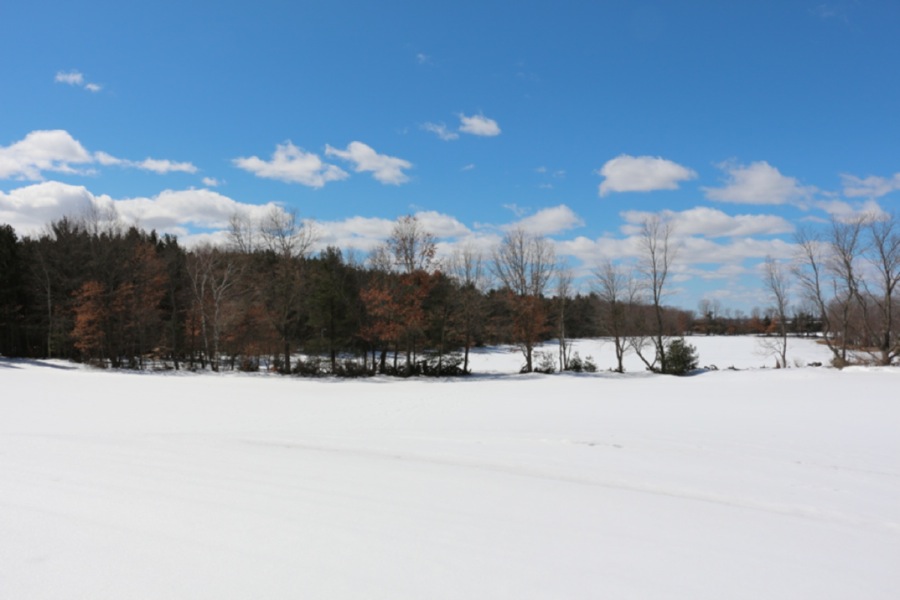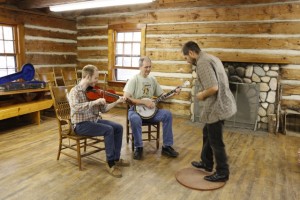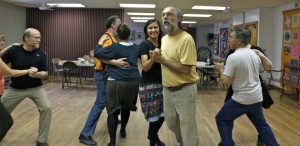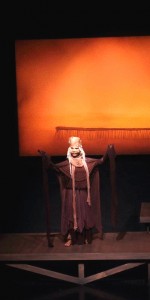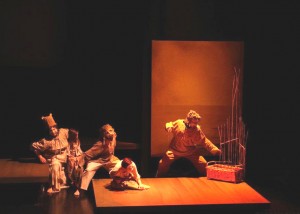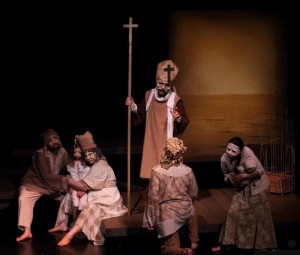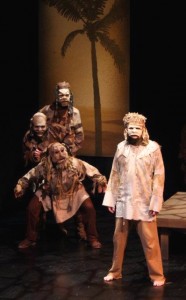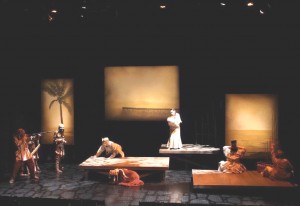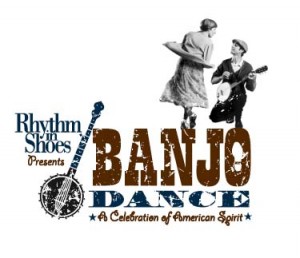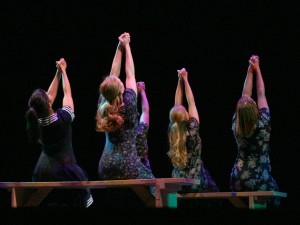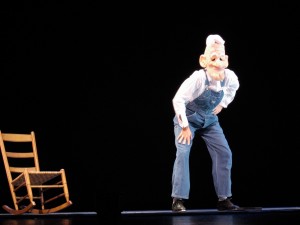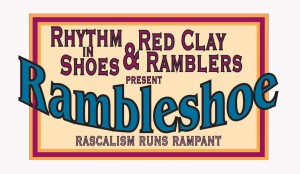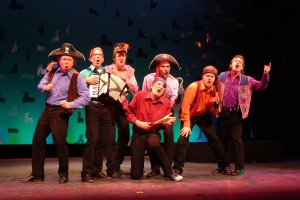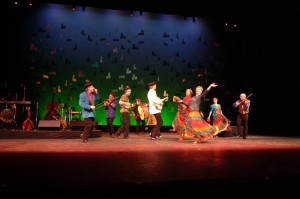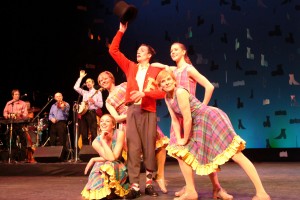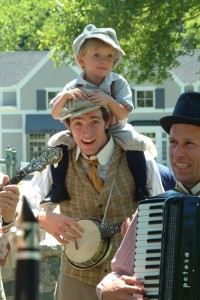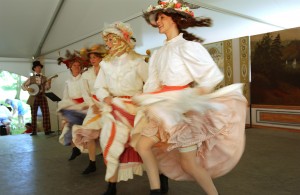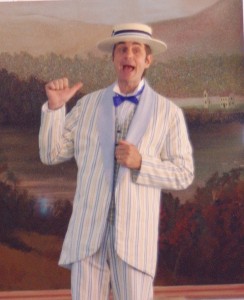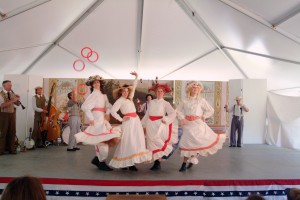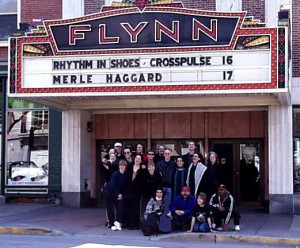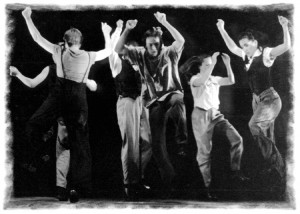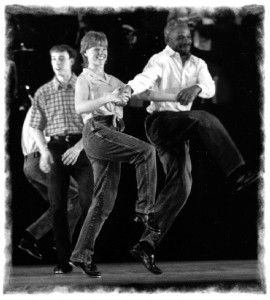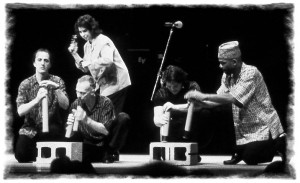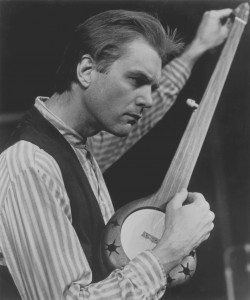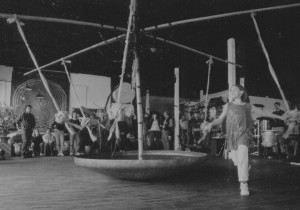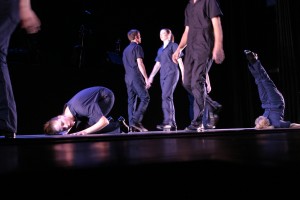| NOTE: This show could still available!

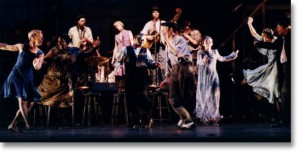
Some people don’t get it, a blind private eye, but I can taste a bitter lie, feel a shaky alibi, hear the whispered tales behind the secret lives you lead. You think there’s something there because you see it. You think there’s nothing there because you don’t. You think if you look like it, you can be it. Well, you won’t.
They say ninety percent of the entire universe is something you cannot see. That makes everybody, everywhere near as blind as me. Beyond that far event horizon there is so much more than meets the eyes and the world as we know it shatters. As above, so below. Always ask someone who knows when it comes to these dark matters.
Frank Galileo – from Nova Town
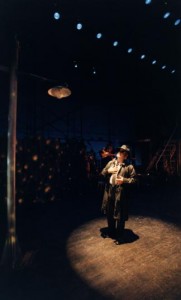
Written by Rick Good and directed by Sharon Leahy, Nova Town had its world premiere on September 29 and 30th, 2000, at the Victoria Theatre. It was a collaboration between the musicians and dancers of Rhythm in Shoes and five of Dayton’s finest actors: Bruce Cromer, Michael Lippert, Jay Pearce, Sheila Ramsey and Michelle Zimmerman.
Nova Town is an inner city neighborhood gone to seed. Its residents are the hasbeens and wanna be’s whose lives have passed them by.
Nova Town is dancing: tap and swing, music: jazz and blues, and physics: astro and meta, all rolled into an original theater production with shades of film noir, beat poetry and sci-fi. Through the interactions of a lovable loser, a worn out bar maid, a doubtful deacon, a blind private eye, a crooked cop and an extra-terrestrial agent of the powers that be, we learn how connected and critical we are to the great mysteries of the Universe, in spite of our inability to comprehend it all.
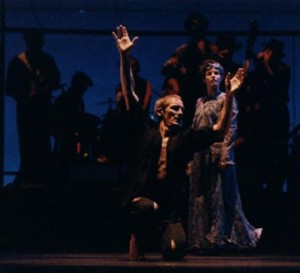
Interview with the Author
reprinted with permission from the Fall, 2014 issue of UP & DOWN: the Journal of Astrophysics & Blues
Up & Down: When and how did Nova Town begin?
Rick Good: Nova Town began in the early 1980’s as a growing collection of songs I was writing in a blues/swing style. Early on, Sharon (Leahy) and I began working out harmonies to some of them. Eventually, her choreography took the music to a new level. She turned the title song into an exquisite tap ballet. It became an important part of the Rhythm in Shoes repertoire and we were both convinced that someday the material would develop into a full-length music, dance and theater piece.
As it continued to evolved, the underlying theme that human experience is mirrored in the heavens possessed me and I read everything I could understand and more about modern astronomy.
U&D: What was your process? How did it all come together?
RG: It was tricky, but it was also clear to me that here was a colorful place, peopled with fascinating characters and fueled by a universally appealing metaphor. The ingredients were all there. It simmered on the back burner for a long time but I always had at least one eye on it. The creative process can move very slowly, even to the point of apparent standstill. It’s a beautiful and mysterious thing and perseverance pays off.
The upside of taking a long time was our company’s growing reputation for doing good work and the friendships we developed with local artists. By the time a script was coming together, we were able to collaborate with some of the best actors in the area. Another key was Sharon’s decision to direct the entire production. Her choreographic skills informed the whole process.
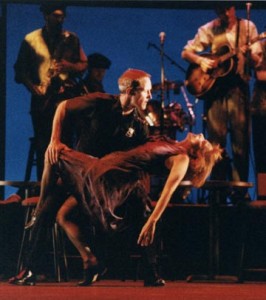
U&D: So, you wrote the script and music and Sharon choreographed and directed.
RG: Yeah, it was exhilarating, mind-expanding and, at times, terrifying. I learned that writing words on paper and having what pretends to be a finished script puts the piece maybe halfway there. A director’s vision can require some radical changes. Plus, an actor can take a character to places the writer never imagined.
U&D: Can you give an example of something that might have changed in the direction?
RG: I’d written a scene for the ghost of the crooked cop and the blind private eye (Officer Brown and Frank Galileo). The dialogue was centered around Brown’s remorse and Galileo’s judgment that it was too late, that there’s no coming back and saying your sorry. I had Galileo tossing Brown’s pocket watch to him and it being too heavy for him to hold. Although I liked the dialogue and thought it could work as a scene, Sharon had this visual image of all the characters passing the watch, one to another, while the ghost—who none of them could see—tried in vain to get ahold of it. It was wordless choreography that showed the same things I had written. It’s hard to let go at first but you learn to do what works. The director’s issues were often things that nagged at my subconscious. The collaborative process brought them out in the open.
For instance, originally I had the crooked cop being killed by a gun. Later, the same rifle was used by Galileo to shoot out the lights of Nova Town so all his friends could see real stars in the sky. I was always a little… I don’t know, uncomfortable may be too strong a word, but something about using a gun just bothered me. I never said anything about it until Sharon voiced a similar feeling.
U&D: So what became of gun?
RG: We didn’t need it. Sharon suggested we use a shovel as the fatal weapon because there was already one on stage. I warmed up to the idea and one day brought a slingshot to rehearsal so Galileo could still shoot out the lights. It all worked very well, much better than a gun would have. A swinging shovel is visually much more dramatic that a gun, plus, Spats gets to holler, “Blind man with a slingshot!”
U&D: Is Nova Town based on a real place?
RG: I grew up in Dayton, Ohio, a city whose pride came from the the things its people made. Now, like a lot of manufacturing towns in America’s heartland, it’s seen better days. I’ve been told by other Daytonians that there’s a resonance. Nova Town is an inner city neighborhood gone to seed. For the residents, it’s also a state of mind.
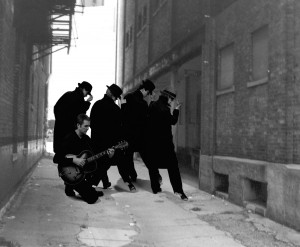
U&D: Who are the residents?
RG: I call them Strivers. They’re the hasbeens and the wannabees whose lives have passed them by. They have stories that are more or less true and excuses that are more or less legitimate. They got a right to sing the blues and that’s what they do. They sing, they dance, they watch out for each other.
The character of Dusty, she’s a highly-evolved extra-terrestrial that comes to town, says Nova Town is “very far from the center of things.” To me this means that chances are very slim that day to day existence is going to run smoothly. When you’re a Striver you realize the odds are stacked against you and you take whatever joy you can find.
U&D: Tell us more about Dusty.
RG: Special Agent Stardust is not from around here. She comes from “a world apart” and it’s she who adds the science to the fiction. When you consider that the human race is both intelligent enough to harness nuclear energy and stupid enough to misuse it, a benevolent race of higher beings that keeps an eye on the bigger picture is a comforting idea. Dusty is an emissary from the “Powers that Be” and she’s sent to Earth whenever it’s necessary to intercede in human affairs for the general maintenance of the Universe.
U&D: She speaks of damaging a mirror on a prior assignment.
RG: It’s what NASA referred to as the “spherical aberration” in the main reflector of the Hubble Space Telescope. There was a period of time, before that remarkable in-space repair job, that the Hubble was unable to focus clearly because the main mirror was flawed. I considered the possibility that it was not an accident, that there was something up there that someone didn’t want us to see.
U&D: Such as?
RG: A wormhole, for instance. Scientists speculate that these tunnel-like structures could spontaneously appear and disappear, linking one area of space to another; a short cut to someplace light years away. Let’s say there was a wormhole all set to materialize right where a fully-functioning Hubble could have seen it. Let’s say scientists would have thought they understood what it was and let’s say they’d have been wrong. People can do a lot of damage when they think they understand something they don’t.
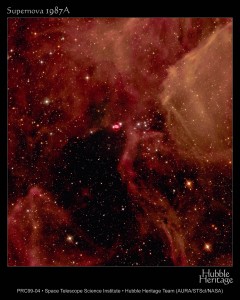
U&D: So the “Powers that Be” interceded.
RG: Right, to avoid some cosmic catastrophe they sent Dusty down to sabotage the mirror. They knew it would eventually be repaired but not until the wormhole was gone.
U&D: Why is she sent back and why to Nova Town?
RG: Let’s say the Universe depends on Earth and its inhabitants to play a part in the transformation of energies and the role of humankind involves the evolution of consciousness, specifically our ability to perceive objective reality and the higher forms of energy that are created when we do. Most of us get stuck and sleepwalk through life and shocks from the outside are necessary to get us to the next level. Dusty comes to Nova Town to jump start stalled lives.
U&D: How does she do this?
RG: She orchestrates a conspiracy of events that transforms the lives of some of the Strivers.
U&D: Tell us about them.
RG: There’s Kitty McTell, the feisty manager of the local Waterin’ Hole. Long ago, she had a promising career as a dancer but she believes the despicable Officer Brown ruined it all. Brown is a crooked cop who dominates the town’s underworld. He’s used to having his way and he’s made a lot of enemies. Brown’s been tipped off that somebody’s about to rat him out and he’s pretty sure it’s Spats. Spats is a typical hard luck local, the eternal optimist on a never-ending losing streak. He works for Kitty at the Waterin’ Hole and does odd jobs around the neighborhood. It’s his gambling habit that ties him to Brown. Spats is also helping the new minister, Deacon Jones, renovate one of the neighborhood’s many worn out buildings.
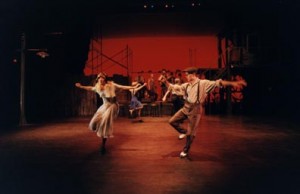
Jones is the type who’s all head and no heart. He’s yet to have a true religious experience and he’s come to Nova Town for one last ditch effort to build a congregation. Last, but not least, is Frank Galileo: poet, philosopher and blind private eye. His lack of sight is no handicap. In fact, Dusty finds in Galileo a uniquely awakened spirit in whom she can confide. Nobody but the blind man even senses her presence.
U&D: It’s hard to imagine what someone who hasn’t actually seen Nova Town would make of all this.
RG: Well we’d love to do it again.
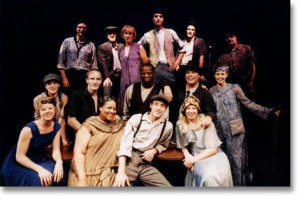
The stellar cast of Nova Town
|
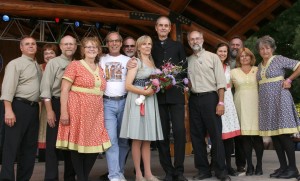
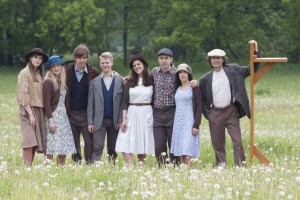
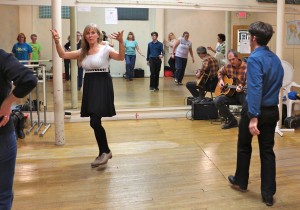
![]() Rambleshoe: 2003 & 2004
Rambleshoe: 2003 & 2004![]() Dayton Contemporary Dance Company: 2000 & 2001
Dayton Contemporary Dance Company: 2000 & 2001![]() Time Shifts: 1999
Time Shifts: 1999![]() The Last Song of John Proffit: 1998
The Last Song of John Proffit: 1998![]() Do You Remember This?: 1997
Do You Remember This?: 1997